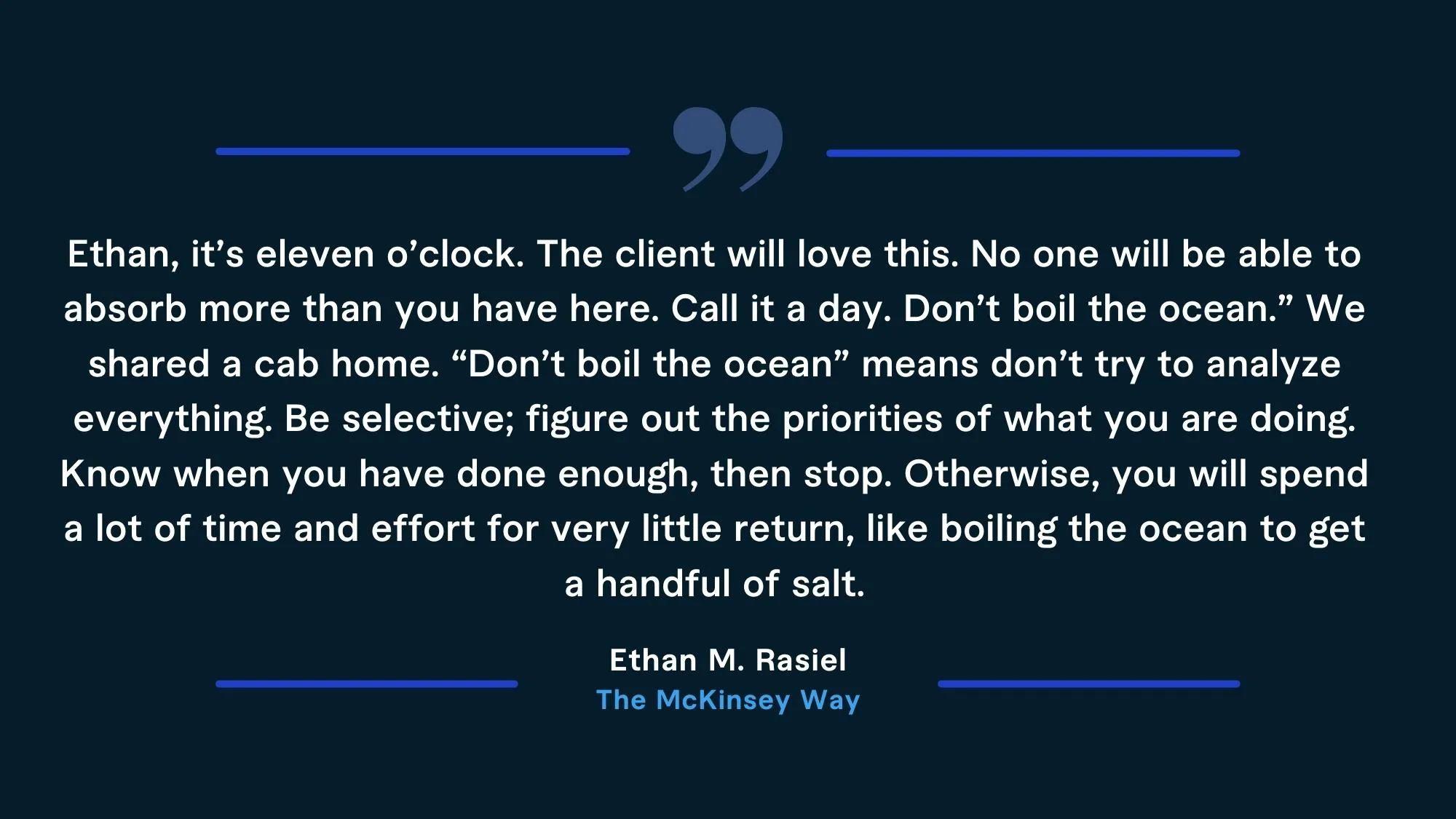
by Priya Gosavi

McKinsey & Company, a global management consulting firm, offers a variety of internships that provide students with first-hand experience in the consulting industry. These internships are divided into two main tracks: UG internships and MBA internships. Undergraduates are typically recruited into Business Analyst Intern positions, while MBAs are recruited into Associate positions. The internships usually last 10 weeks during the summer and are known for their competitive salaries.
Interns at McKinsey work in teams of 3-5 consultants, playing an active role in all aspects of client engagement. This includes gathering and analyzing information, formulating and testing hypotheses, and developing and communicating recommendations. They help clients make lasting improvements to their performance and realize their most important goals. The work structure for interns is very similar to that of full-time associates, providing them with a realistic insight into the world of consulting.
The eligibility criteria for McKinsey internships vary depending on the specific program. However, outstanding academic performance and excellent leadership, achieving, and problem-solving skills are generally required. For undergraduate internships, applicants should be in their junior year or a second-year of a non-business master’s program with less than 2 years of work experience. For MBA internships, applicants should be currently enrolled in an advanced graduate degree like an MBA or PhD.
McKinsey offers several popular internship programs including the Summer Business Analyst (SBA) Internship, Sophomore Summer Business Analyst (SSBA) Internship, First Year Summer Business Analyst (FYSBA) Internship, Summer Associate Internship, Summer Associate Implementation Internship, and McKinsey Insight. Let’s learn more about each program:
McKinsey internships typically last 10 weeks in the summer. For undergraduate internships, applications need to be submitted around mid-October. For MBA internships, applications should be submitted in the first couple of days of December if enrolled in a US-based MBA program.
The interview process for McKinsey internships is highly competitive and includes multiple rounds of personal and case interviews. The interviews usually consist of two sections: Personal Experience Interview (PEI) and fit questions, followed by a case interview. It’s recommended that applicants practice with mock interviews before the actual interview.
The Personal Experience Interview (PEI) is a crucial part of the McKinsey interview process, designed to assess personal qualities and determine if candidates would be a good fit for the company. This is particularly important for internship applicants, as it provides an opportunity for them to demonstrate their potential.
Some real examples of questions asked during the PEI at McKinsey include:
In addition to these, McKinsey also asks fit questions during an internship application. These questions are designed to assess whether the candidate’s values and working style align with the company’s culture. Some examples of fit questions asked at McKinsey during an internship application include:

When answering these questions, it’s important for candidates to focus on themselves and their impact, using the word “I” rather than “we”. They should avoid repeating answers or providing irrelevant stories, and they should know all the details of their stories. The responses should be concise, usually taking 1 or 2 sentences per action, and the results part should have 1 or 2 sentences describing the outcomes. This part is crucial as it finalizes the story and leaves a lasting impression on the interviewer.
McKinsey has a high conversion rate of interns to full-time roles. In fact, top management consulting firms like McKinsey have offered full-time positions to nearly 90% of their interns. At the end of the internship, successful interns may receive an offer to join McKinsey as a full-time associate or analyst.
The estimated average pay for a student intern at McKinsey in the United States is $17.11 per hour, which is 11% above the national average. This translates to nearly $17,000 for the 10-week period. However, the salary can vary depending on the specific program and location. For instance, MBA interns are compensated an impressive total of $32,000 for 10 weeks. Note, there is no public Information about intern salaries in India.